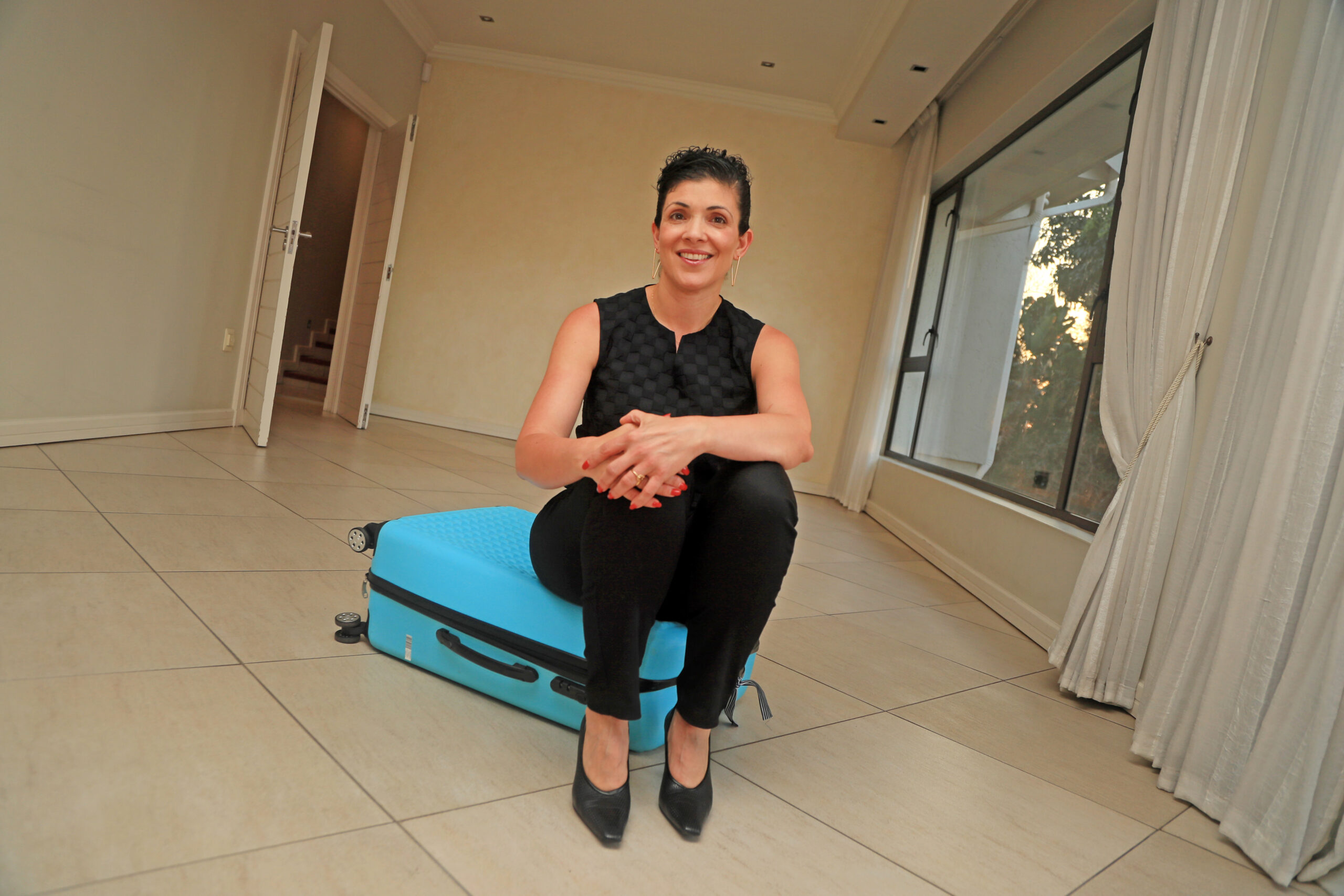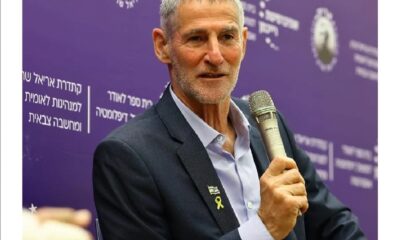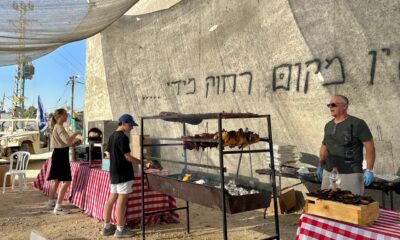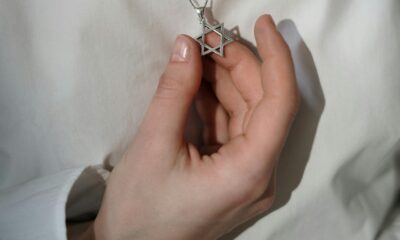
Featured Item

‘This isn’t goodbye’ – Liat Amar Arran
As Liat Amar Arran, who has run the Israel Centre in South Africa for the past four and a half years, packs to return to Israel, she encourages the local community to feel free to criticise Israel and not feel bad about doing so.
“This is a truly Zionist community, and criticising Israel is healthy even if you don’t live there. You’re a part of Israel and being critical doesn’t mean you don’t support the country. It means you care about what goes on there and about finding positive solutions,” she said in her farewell interview with the SA Jewish Report. “Your voices matter, and if you agree or disagree, you’re entitled to be heard by the Israeli government.”
Amar Arran, who has become an intrinsic part of local communal leadership, has tackled so much more than her position warranted.
As the representative of the Jewish Agency in South Africa, her role was to build the bond between Israel and the South African community, help the local community, and enable aliya.
When the COVID-19 pandemic was about to spread to South Africa, just one year into her shlichut, she asked communal leaders to meet to work out a strategy to tackle it. And, though lockdown was a lonely time for her, her husband, Tzvika (Biko) Arran, and their five sons, being so far from home and their loved ones, she help people to bridge the divide between South Africa and Israel where it mattered most.
The last thing she expected was for her and her family to be so sad to leave. In fact, she didn’t believe they would last more than a year here.
When she was first offered this role, she could “find only negative pictures” of life in South Africa, so she said no. “They said if I waited six months, I could go to Los Angeles.” She came here for a week to get a closer look, and her “heart started opening to this place” although she was anxious about security and curtailing her children’s freedom.
It took being at the launch of Cycalive, a bridge-building cycling initiative where she saw “tikkun olam in its truest form” and the possibilities of what she could do here, to get her to commit to her role.
In fact, when Israeli President Isaac Herzog, the former head of the Jewish Agency, called her at the onset of the pandemic and told her to come home because he was worried about her and her family, she refused, saying she was needed here.
When she first arrived, although her husband – who put his career on hold to support her – encouraged her, her children were devastated that she had taken them from their happy life in the Negev to bring them to this “strange place”.
“It was hard to hear them crying and not wanting to go to school because the kids thought they were weird. I often asked Biko if we had done the right thing,” Amar Aran said. “I did say it was unlikely we would stay for four years, perhaps a year and a half. I didn’t count on falling in love with this place and community.
“Just as I understood my job professionally and was ready to start inventing things to add to it so I wouldn’t be bored, the COVID-19 pandemic hit,” she said.
“During the pandemic, work became an emergency room in which we were evacuating people from here to Israel and bringing people back. We were working to send olim to Israel with the regulations changing all the time,” said Amar Arran. “I wouldn’t give up as long as I could help people.” And it wasn’t without effort that the Jewish Agency sent millions of rands to support the local Jewish community through the pandemic.
Amar Arran found herself working 24/7 trying to get South Africans to Israel or people in Israel back here for simchas, to be with dying parents, and other emergencies. Everyone knew they could contact Amar Arran at any time, day or night.
During the pandemic, she was the only person who could navigate the Israeli embassy, the Israeli government, and the local community. “I worked hard to get South Africa off Israel’s red list, enabling the country to visit Israel again,” she said. “It was important for me to get people in and out, and to help those who really needed it.” At the same time, she was an empathetic shoulder to cry on for those in difficult and sometimes impossible situations. “Sometimes it took too long to find a solution, and all I could do was hold the family’s hands.”
Amar Arran became known for showing Israel, warts and all, to those who wanted to make aliya. “I don’t want people to make aliya, thinking it will be easy, and then fail. They have to make a decision based on an honest picture. It isn’t easy to tell someone, ‘aliya isn’t for you’, but I have done so.” In spite of this, she still sent 350 people on aliya in 2020 during the toughest days of the pandemic, 570 in 2021, and 480 in 2022. This year, she believes about 300 will go.
People were determined to make aliya even when “Israeli skies were closed”, she said, and Amar Arran did what she could to help. “When Rabbi [Craig] Kacev [the former director of the South African Board of Jewish Education] was waiting to make aliya in March 2021, Israel wasn’t allowing anyone in. Eventually it approved four planes of Ethiopian olim, and I managed to get 12 of our olim on the flight. They had to be ready to be notified just 24 hours before the flight. They got to Israel, and were quarantined for two weeks, but they were happy.”
Looking back, she says it was times like that, and “managing a community under crisis”, that were so exciting. “Other highlights were the many one-on-one interactions I had with people in the community in which I could make a difference in their lives. Every time I built a new bridge was a highlight for me.”
She recalled taking shlichim to the Garden Route for Yom Ha’atzmaut and built a wonderful connection with the community there. “We stepped into a shul and community that hadn’t seen shlichim before, and we had a wonderful time with them. It led to the Habonim shaliach returning there later and strengthening that bridge.”
Amar Arran said her time here wasn’t always easy for her family. “Biko gave up a lot in his career to be here with me, but he never wavered in his support,” she said.
“For the kids, the first six months was terrible, having their freedom curtailed and leaving all they knew behind. COVID-19 was hard for them too, but now, they don’t want to go home,” she said. “I can see that being here has strengthened their Jewish identity and their ability to manage wherever they are.” And from finding it difficult to fit in, there are a chorus of King David kids who don’t want them to leave.
“I arrived here at a time of change for communal leadership, and this enabled me to step into communal areas that in the past wouldn’t have been open to me,” she said. So she dealt with education, youth, basically wherever they needed help.
She turned the Israel Centre into a customer-focused department where people felt they were being served in every possible way. “We were also available to meet and talk through issues,” Amar Arran said.
She purposefully stepped away from politics because she was needed elsewhere. “I believe if there are too many people around one table, I should find another,” she said.
Now that she’s heading back to her community in a small town in the northern Negev, she wants to see her children integrate easily and give her husband space to grow in his career.
She’ll continue to work with the Israel Centre until the end of the year, but mostly from Israel. In the meantime, she’ll look for a new path. “I believe I must be in Israel a while to see where I’m needed and where I want to invest my time,” she said.
“I’ll miss so much about South Africa. I’ll miss the kindness of people – their willingness to help. I’ll miss my role that enabled me to speak to the president one minute and a five-year-old the next, dealing with totally different issues.”
She marvels at the Jewish community here, saying it has “such a special way of living a Jewish life”, and Israelis have much to learn from this community. She’s impressed at how the community takes care of everything for itself, including healthcare, water, electricity, education, culture, social welfare, and more.
And she hopes more community members will take an interest and get involved in South Africa. “As long as you live here, it’s important to get involved in helping to build your country. People do a lot, but more can be done by more people,” Amar Arran said.
She also hopes younger people will step into communal leadership. “It’s vital that those between 25 and 40 get involved and bring their ideas and innovation to communal organisations,” she said.
As she bids farewell, she has a sense that “this isn’t goodbye”.










